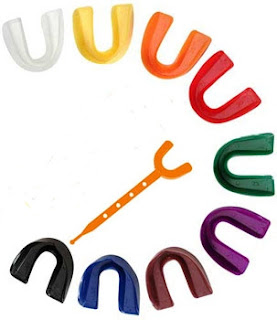
At The Smile Zone, we know getting kids and teens to eat healthy isn’t always an easy task, especially when they’re busy with school and other school- and social-related activities. At the school cafeteria, it's just too easy for kids to nosh on french fries, chicken nuggets and other fried foods and unhealthy snacks, so Drs. Rob Andrew and Jerome Caouette and our team thought we’d pass along five delicious and nutritious snacks we know your child will love.
1. Cheese – Cheese is one of the healthiest snacks for your child's teeth. In addition to providing large amounts of much-needed calcium, cheese also does its part to fight cavities. Cheese stimulates the body's salivary glands to clear the mouth of debris and protect them from acids that weaken them, according to the American Academy of Pediatric Dentistry. This means cheese disrupts the development of cavities, especially when eaten as a snack or at the end of a meal. Calcium and phosphorous found in cheese reduce or prevent decreases in the plaque's ph level and work to re-mineralize the enamel of your child's teeth.
2. Blueberries These tiny nutritional powerhouses are loaded with Vitamin C, as well as folic acid, minerals, fiber and disease-fighting phytochemicals, which have shown to help prevent cancer and diabetes. Kids love them sprinkled with a bit of sugar, topped with whipped cream, added to muffins and pancakes.
3. Whole wheat bread or cereal With bread, kids get their iron, vitamins, magnesium, and zinc. With vitamins, calcium, and fiber, a bowl of enriched whole grain cereal with milk—and even fruit—is a power-packed snack or healthy start to the day.
4. Almonds They’re rich in disease-fighting phytochemicals and Vitamin E, and also have good amounts of fiber, iron, and calcium. Let your kids eat them raw. (Note: Whole nuts are a choking hazard for children under 3 years old.)
5. Yogurt Eating dairy is not just healthy for building strong bones, but is essential for maintaining a strong, healthy mouth. Low-fat yogurt is an excellent source of calcium, especially when whipped up in a parfait with berries and granola. Homemade fruity yogurt pop sure beats sugary store-bought frozen treats!
We encourage you to check out the other 15 healthy snacks your child can enjoy at any time of the day! For more information about which foods are best for keeping your teeth healthy, please post your question here on our blog, give us a call or ask us on Facebook!











